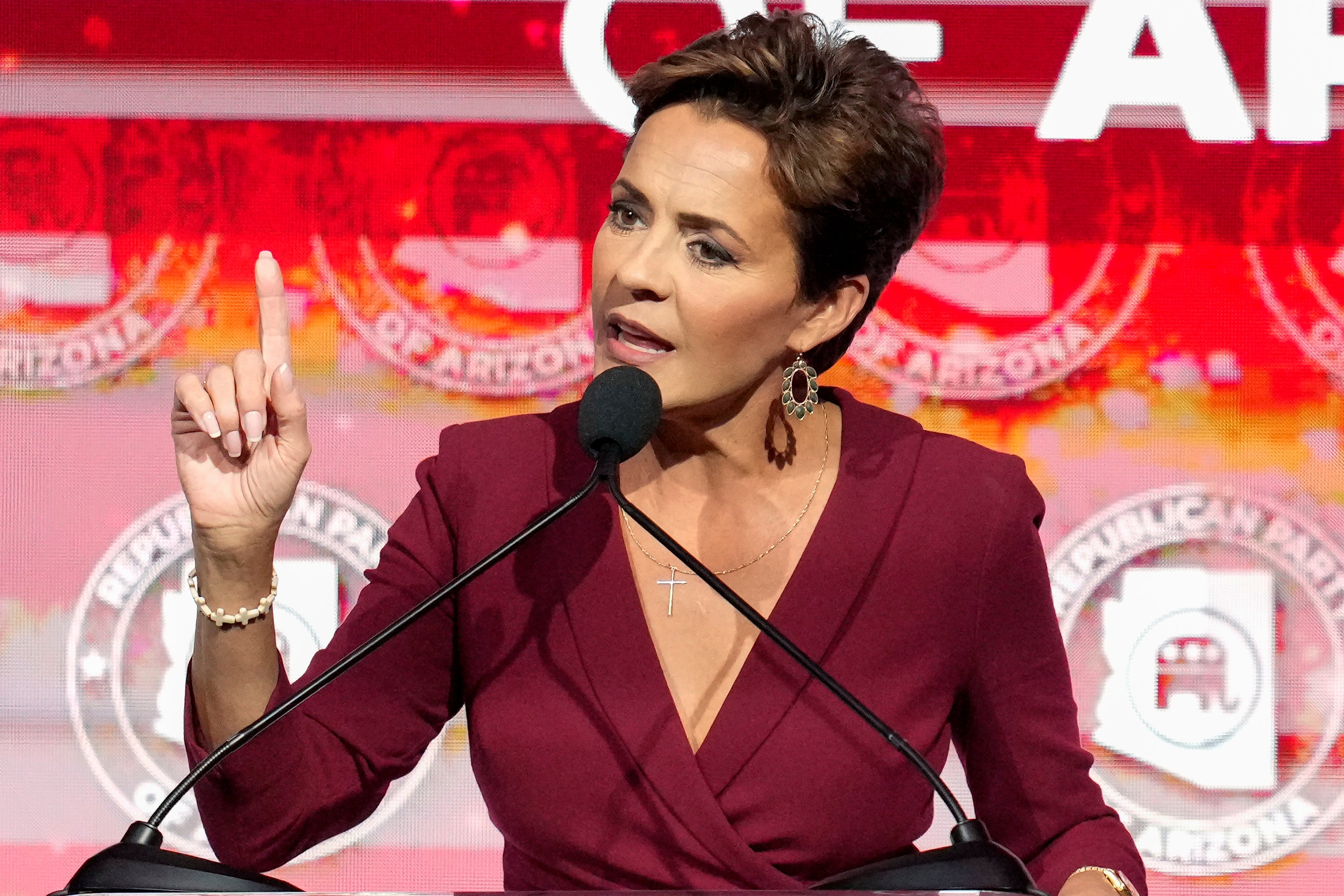Kari Lake suffers final defeat in bid to overturn Arizona governor’s race that she lost
A judge has rejected Kari Lake’s remaining legal claim challenging her loss in the race for Arizona governor
Your support helps us to tell the story
From reproductive rights to climate change to Big Tech, The Independent is on the ground when the story is developing. Whether it's investigating the financials of Elon Musk's pro-Trump PAC or producing our latest documentary, 'The A Word', which shines a light on the American women fighting for reproductive rights, we know how important it is to parse out the facts from the messaging.
At such a critical moment in US history, we need reporters on the ground. Your donation allows us to keep sending journalists to speak to both sides of the story.
The Independent is trusted by Americans across the entire political spectrum. And unlike many other quality news outlets, we choose not to lock Americans out of our reporting and analysis with paywalls. We believe quality journalism should be available to everyone, paid for by those who can afford it.
Your support makes all the difference.Kari Lake has suffered a final defeat in her bid to overturn her loss in last year's race for Arizona governor. A judge dismissed Ms Lake’s only remaining legal claim, affirming the election of Democrat Katie Hobbs.
Maricopa County Superior Court Judge Peter A. Thompson said Ms Lake failed to prove her claim that Maricopa County did not verify signatures on mail ballots as required by law.
Ms Lake was among the most vocal of last year’s Republican candidates promoting former President Donald Trump’s election lies, which she made the centerpiece of her campaign. She has built a loyal following among Trump supporters and is openly considering a run for the US Senate seat now held by Kyrsten Sinema, an independent and former Democrat. Ms Lake is also often mentioned as a potential vice presidential pick for Mr Trump, who is campaigning for a second term in the White House.
While most other election deniers around the country conceded after losing their races in November, Ms Lake did not. She has touted her legal battle in fundraising appeals and speeches around the country.
Ms Lake did not immediately comment on the ruling.
She filed suit after losing to Ms Hobbs by about 17,000 votes, asking the courts to install her as governor or order a new election. Judge Thompson dismissed the case, but the Arizona Supreme Court revived a claim that challenges how signature verification procedures were used on early ballots in Maricopa County, home to more than 60 per cent of the state’s voters. County officials had defended the signature verification efforts and said they had nothing to hide.

Ms Lake’s signature verification claim was the subject of a three-day trial. Her lawyers argued that there was evidence that lower-level screeners who found inconsistencies in signatures ran them up the chain of command, where they were neglected by higher-level verifiers.
She did not contest whether voters’ signatures on ballot envelopes matched those in their voting records.
The former TV anchor faced a high bar in proving not only her allegation over signature verification efforts but also that it affected the outcome of her race.
Judge Thompson, who was appointed to the bench by former Republican Gov Jan Brewer, said she did not meet that high bar.
“The evidence the Court received does not support Plaintiff’s remaining claim,” he wrote.
Earlier in her lawsuit, Ms Lake had focused on problems with ballot printers at some polling places in Maricopa County. The defective printers produced ballots that were too light to be read by the on-site tabulators at polling places. Lines were backed up in some areas amid the confusion. Ms Lake alleged ballot printer problems were the result of intentional misconduct.
County officials say everyone had a chance to vote and all ballots were counted because those affected by the printers were taken to more sophisticated counters at election headquarters.
In mid-February, the Arizona Court of Appeals rejected Ms Lake’s assertions, concluding she presented no evidence that voters whose ballots were unreadable by tabulators at polling places were unable to vote.
The following month, the state Supreme Court declined to hear nearly all of Lake’s appeal, saying there was no evidence to support her claim that more than 35,000 ballots were added to vote totals.
Earlier this month, the court sanctioned Ms Lake’s lawyers $2,000 for making false statements when saying that more than 35,000 ballots had been improperly added to the total count.



